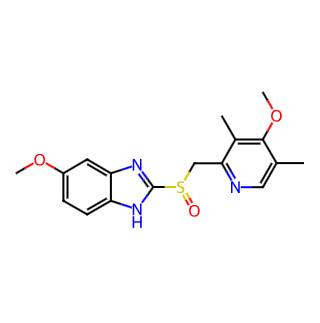- Synthetic anti-infective drugs
- Medications for the digestive system
- Antipyretic and analgesic drugs
- Medications for the blood system
- Medications for the respiratory system
- Anti-allergic drugs
- Medications for the urinary system
- Diagnostic medications
- Immunosuppressive and immunomodulatory drugs
- Vitamins and mineral supplements
- Antioxidants and medications for osteoporosis
- Antiparasitic drugs
- Ophthalmic medications
- Amino acids and their derivatives
- Dermatological medications
- Medications for the circulatory system
- Antitumor drugs
- Medications for the nervous system
- Hormonal and endocrine function-regulating drugs
- Antibiotics
- Others
CAS NO.: 73590-58-6




Omeprazole
Basic Information
English Name: Omeprazole
Chinese Name: 奥美拉唑
Alternative Names: Anweipiazuo, Omeprazol, Methylsulfonylazole, Wobizuo, Womipaizuo, Yafeng Mizuo, Luosaike, etc.
Appearance: White to off-white crystalline powder, melting point 156°C
Pharmacological Action
Omeprazole specifically acts on parietal cells of the gastric mucosa, inhibiting the activity of the hydrogen-potassium ATPase enzyme (also known as the proton pump) within these cells. This inhibition reduces both basal and stimulated gastric acid secretion, making Omeprazole a crucial drug in the treatment of acid-related diseases.
Indications
Primarily used in the treatment of duodenal ulcers and Zollinger-Ellison syndrome.
Also indicated for gastric ulcers, reflux esophagitis, stress ulcers, and other acid-related disorders.
May be used to alleviate symptoms such as heartburn and acid regurgitation caused by excessive gastric acid production.
Precautions
Adverse Reactions: Omeprazole is generally well-tolerated, with common adverse reactions including nausea, upper abdominal pain, diarrhea, and headache. These reactions are mostly mild and self-limiting. However, long-term or high-dose use should be monitored for potential adverse effects.
Drug Interactions: Omeprazole has enzyme-inhibiting properties that may affect the metabolism of drugs metabolized by the hepatic cytochrome P450 system. Therefore, when using Omeprazole, patients should inform their healthcare provider of any other medications they are taking to avoid potential drug interactions.
Use in Special Populations: Omeprazole should be used with caution in pregnant and lactating women. Its safety and effectiveness in children have not been established, and its use in this population is generally not recommended.
Pre-Treatment Examinations: Before initiating Omeprazole therapy, it is important to exclude the possibility of malignancy to ensure the rational and safe use of the drug.
Conclusion
As a proton pump inhibitor, Omeprazole exhibits significant efficacy in inhibiting gastric acid secretion and treating acid-related diseases. However, during its use, attention should be paid to potential adverse reactions, drug interactions, and safety considerations in special populations. Therefore, it is recommended that patients use Omeprazole under the guidance of a healthcare provider to ensure its safety and efficacy.

Tai Yau Street, San Po Kong, Kowloon, Hong Kong, China.



